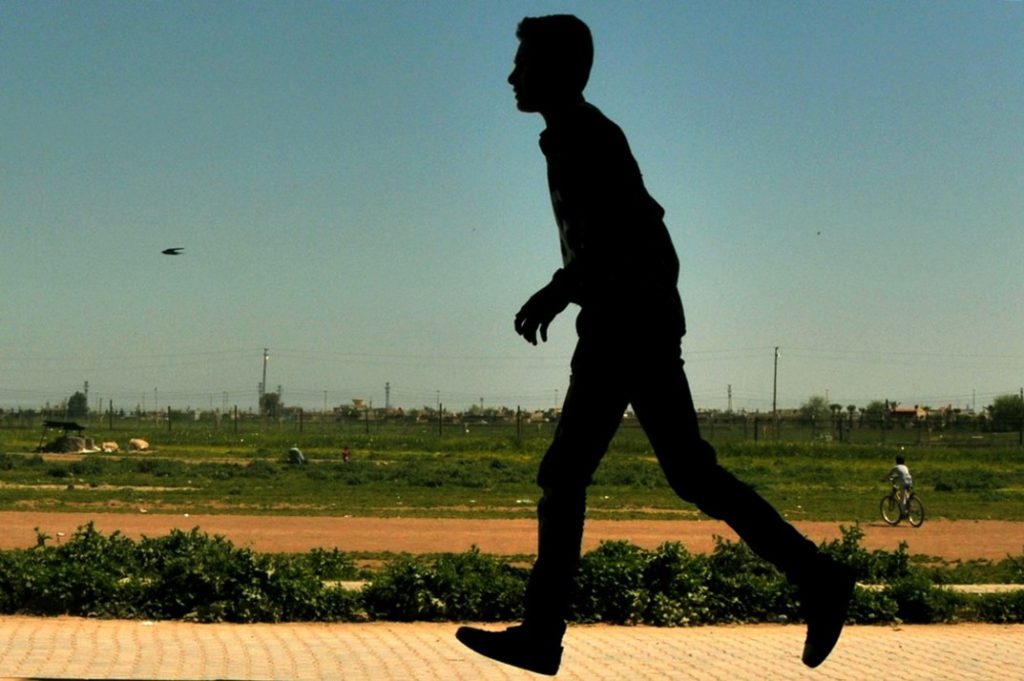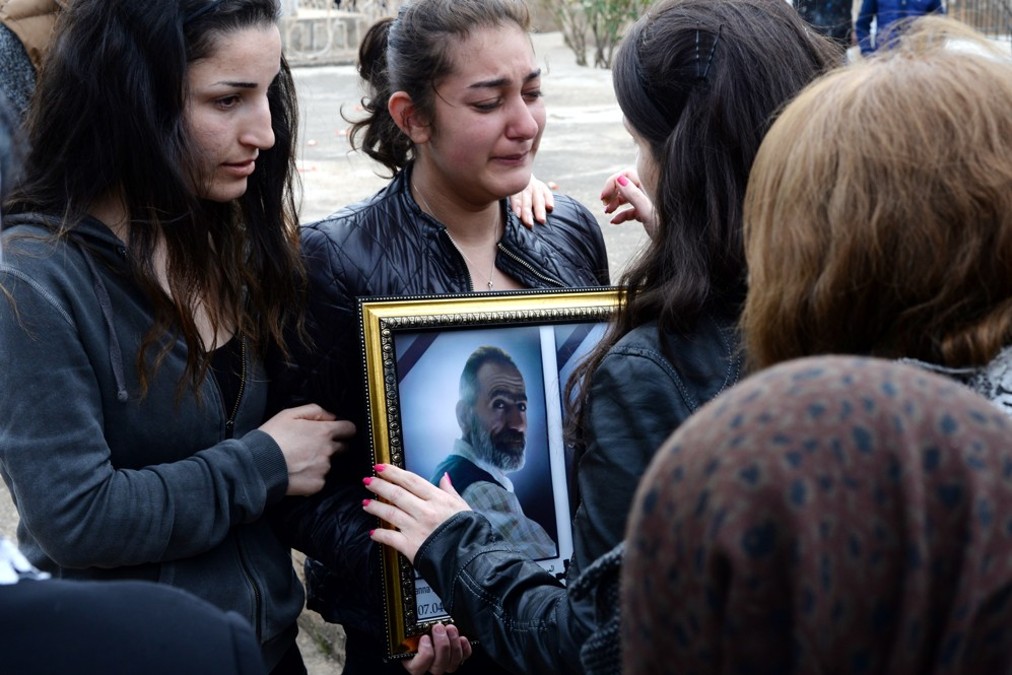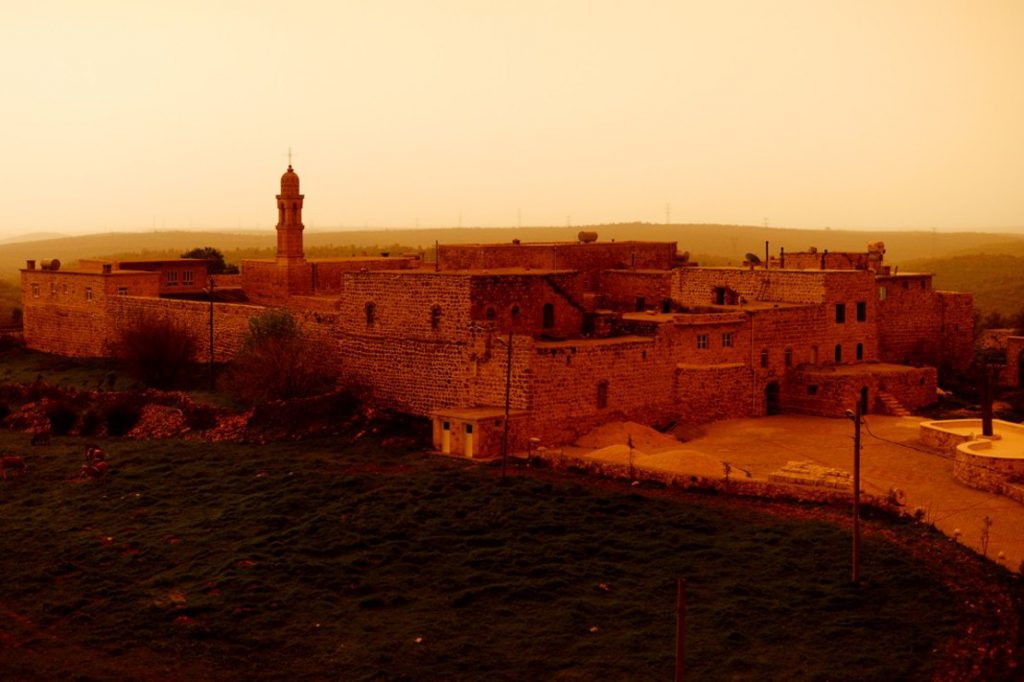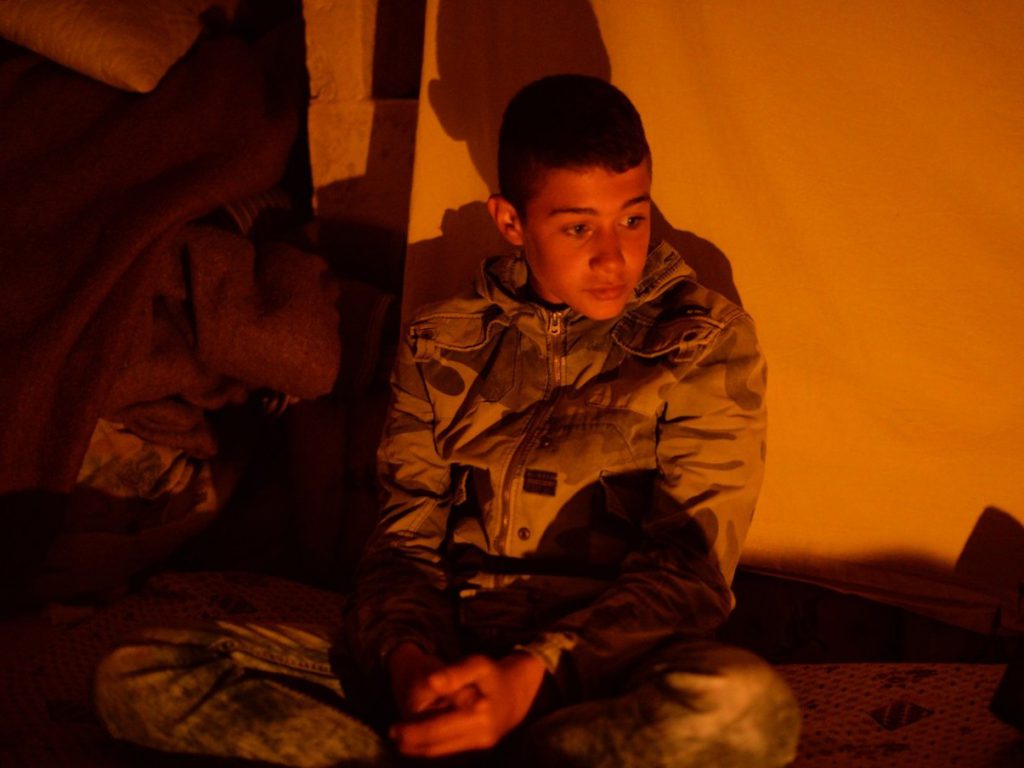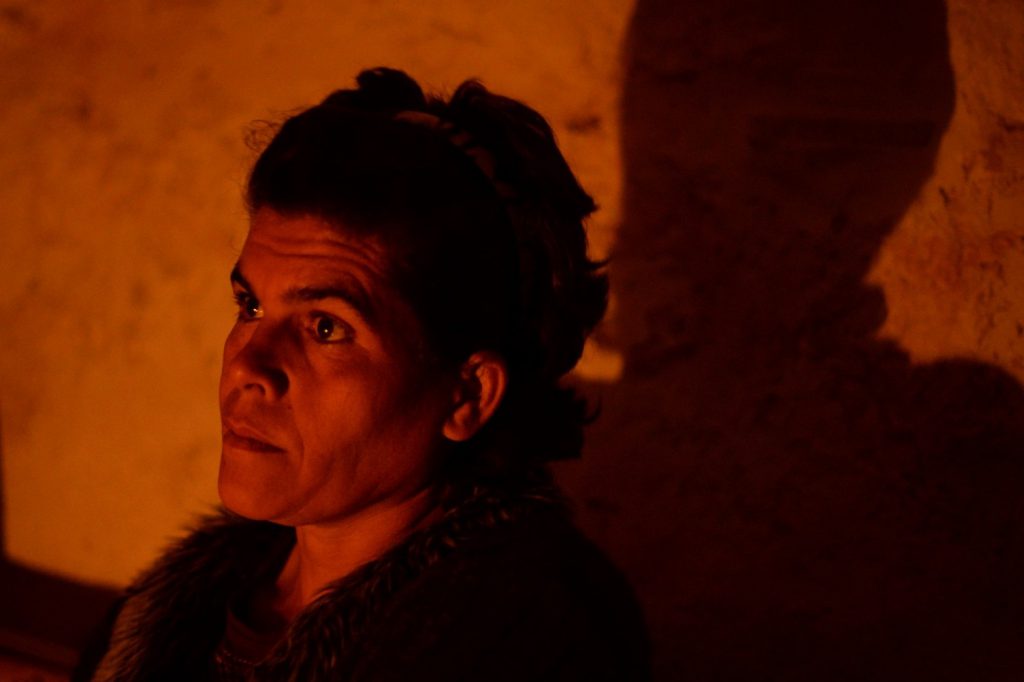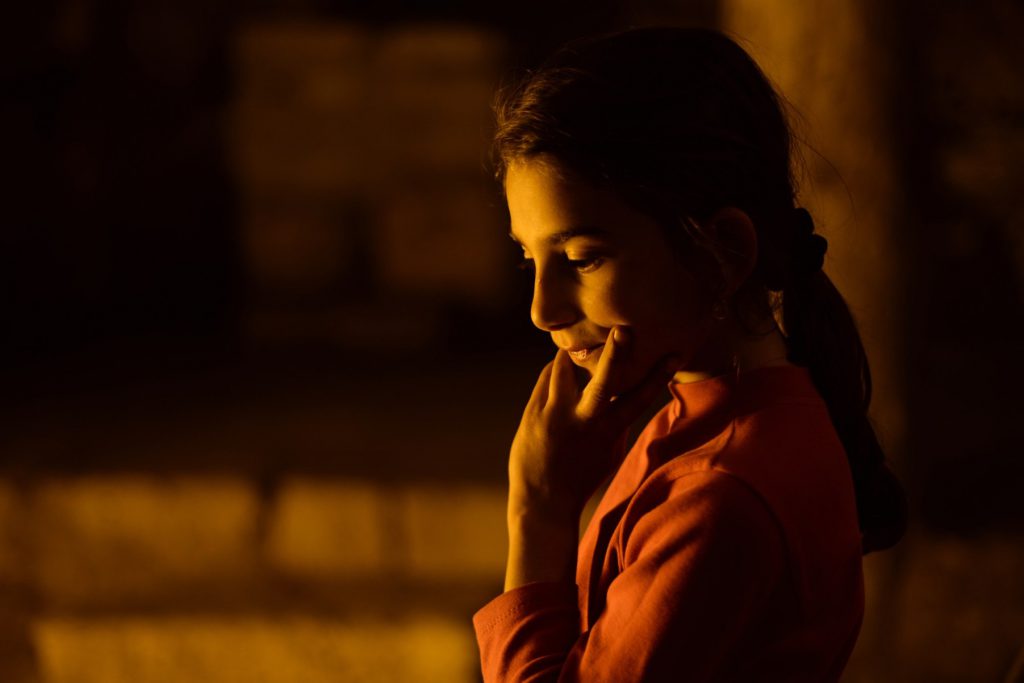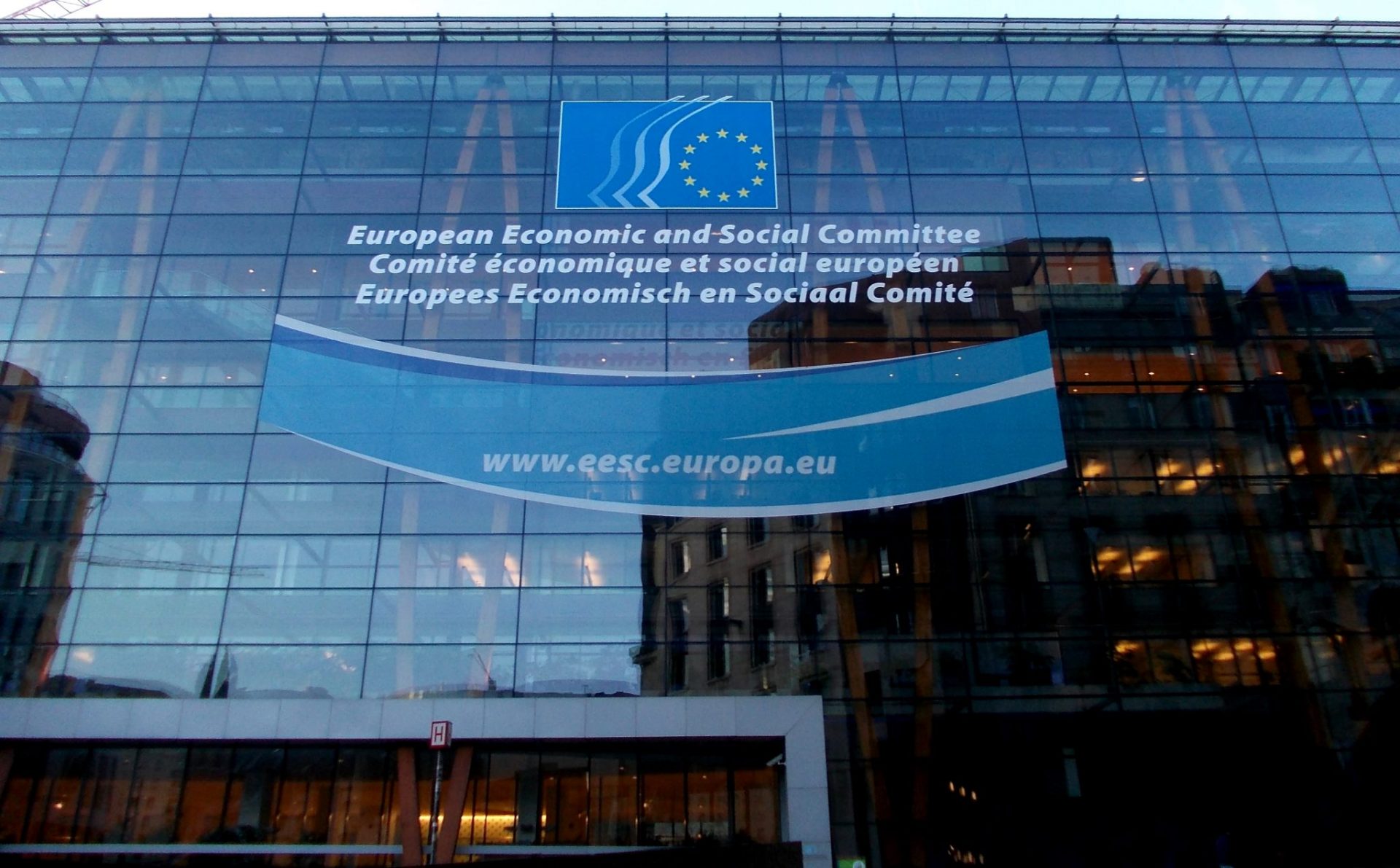
by Martin Balaz
The funeral of two drowned fugitive brothers, Jacob and Hanna, was attended by almost all Assyrian Christians in Midyat in the south-east of Turkey. All of them fitted in a rather small cemetery within the premises of Mor Abraham monastery. Nowadays, there are only few tens of families living in the region. It has just been 100 years of stories of fugitives and everyday life of the Christians who live in the region where this religion started to develop. They do not denounce Muslims faith, only bad people.
A FUNERAL INSTEAD OF A WEDDING
The hope of nineteen fugitives and one human smuggler ended up wrecked on the rocks. “They left the town of Marmaris at one o´clock in the morning for the place they set sail from. They got on the boat at five o´clock. At 6.30 the boat started to sink. The aid arrived only at 11.00. Two younger men, at about the age of 25, had emergency telephone numbers ready. First they called the Greeks, as they were close to their shore. They told them that it wasn´t their problem. Then they called Turkish emergency, yet the call wasn´t even answered. In the end, one of them called his father and told him they were sinking. He immediately alarmed the town´s local police”, says Sargon, who is Hanna´s son.
Two weeks prior to their drowning, they had moved from their native town of Qamishle to Turkish Nusaybin. The border is already closed today. Jacob´s wife stayed in Syria with an intention of rejoining her husband once he had settled down. On their way they stopped at Hanna´s brother in Midyat, in the south-east of Turkey. He begged them not to go anywhere. “They counted on themselves and their skills. Both of them were fishermen and very good swimmers. They were not afraid of the sea”, says their brother Gabriel Banayan.
“It seems that, from the point of view of European people, our brothers flee the country with intention of making more money and getting better comfort. We do have everything here; the internet, smart phones and all the other stuff. We also have work we can make living on. We do not need to go away; it is only that our town is just a few kilometres away from the blockheads. We just need to protect our lives. And we need to protect the lives of our children. The comfort in Europe comes only when we work there” says Gabriel.
The younger brother, Jacob, didn´t have children. In the environment where children represent all fortune one could have, a man who cannot have children is almost nobody. The only person all around who fully respected him was his brother Hanna. They were almost constantly together; at work, when doing door-to-door selling of gas bombs, as well as after work. Jacob didn´t want his brother Hanna to go. “He was crying when he had learnt that his brother had decided to go away in search of a better life”, says their brother, Gabriel, who lives in Turkey. Apart from better life, Hanna had one more motivation – to attend the wedding of his son, Sargon, in Sweden. He was supposed to get married this year. Instead of this, however, the son attended his father´s funeral last Saturday. “There were Christians as well as Muslims on the boat.” concludes talking about brothers Hanna and Jacob their nephew, Hanna.
TWO YEARS OF WAITING
The sons of buried Hanna fled to Turkey two years ago. “They didn´t have any work in Turkey and they couldn´t attend any school, either. They don´t have the citizenship, hence they are not allowed to attend a school. “, explains Maria, Hanna´s sister. If the boat hadn´t wrecked, that eternal waiting for a normal life would have finally come to an end.
“All our children are conscripted by the army. And once they are gone, the devils of the ISIS start attacking us. However, we may as well decide that our children will fight for the ISIS. Yet, in that case, it is the army who attacks us. We simply need to get our children out of here.” describes the situation Gabriel after the funeral in Midyat. Large family is a meaning of life for both Muslims and Syrian Christians. “Our ways of life often overlap.” says Zeki, the mayor of a village near the monastery, about 60 km from Midyat, while sitting on the ground and having his tea. If an uninformed stranger came out of the room, they would not believe they are in within the premises of a monastery and not a mosque.
In the village of Odabasi, in Turkish part of Tur Abdin, live several families whose stories are affected by the civil war in Syria. “If we didn´t have children, we would have stayed.”, says Hanna Musa from the Syrian town of Hewore. Two years ago he made a decision to leave the town, together with his wife and 5 children. For months, people in Hewore had been dying, regardless of their religion. The breakpoint came when they saw dead neighbours. Just one week later they left the house and went away. It´s already been two years that they have been living in one of the houses, provided for them for free, by the father-in-law, who lives in Netherland. They live on the support provided by an European Christian organisation. “We have a card that we can use for making purchases in the IZLA shops at the amount of 150 Turish Liras.” These days, the amount equals approximately 40 Eur. One of the sons used the long time of waiting for learning Syriac language in the Mor Augin monastery, not far from the Odabasi village. In Syria he studied Arabic.
Rany from Syria came out of the church during the mass on Good Friday, on the day commemorating the crucifixion of Christ. He lit a cigarette during singing in the church. It wasn´t because of recalling the events that took place two years ago. It was just an old habit that nobody minds anymore. He can laugh, he can make fun, he believes he can make it to Germany. “There are Christians in Germany, too. Aren´t there?” he raises a rhetorical question. “There were bombs exploding all around us all the time. We started to be really scared. Hence, we decided to flee. I left our house in Hasaka for Kachtania to arrange issuing of our passports, and when I got back home I found my mother and father lying dead in our courtyard. I have no idea why they died.” recalls Rany, living by 2-year waiting in the village of Odabasi.
A week ago, Malak Hajjar and his family moved into a house of his sister´s husband in an old town of Midyat. He had come from a refugee camp just outside Midyat, just a few hundred meters from the place where the brothers Hanna and Jacob were buried. The camp is divided into two sections, the Christian and the Muslim one. They greet the Muslims but do not particularly communicate. “Back in Syria everything was just all right. I had my own house, I had my family, and I had my friends. There were also some Muslims among them. We had never had any problems. We helped each other. When the country was ruled by Asad everything was fine. The police was working and was able to protect us against the blockheads.” he clarifies the situation as it was two years ago. He decided to run away once his son had been kidnapped by the ISIS men. They asked a 25.000-dollar ransom for him. “We didn´t have that much money, so they kept him.” says Malak, nearly crying. He hasn´t got a clue what´s going on with his son. Luckily, he didn´t have Syrian identity card on him, in which a religion of a citizen is stated.
CHRISTIAN ASSYRIA
Funerals are usually attended by all Christians from the town of Midyat and surrounding. Nowadays, there are altogether a few hundreds of them in the area of Tur Abdin. Hanna and Jacob died during the days of Easter. Their bodies were buried in the family tomb within the premises of the Mor Abraham monastery. Christian communities in this area stick together. All of them know one another and all of them are friends. All of them are on the same boat, called Tur Abdin. Some churches in monasteries also include rooms where they gather to talk and drink a tea or coffee once the mass is over. Even one hour after the mass they chat, and then a priest locks the monastery up and the whole lot scatter in the streets of the old town, in which there are 6 churches but not a single mosque. Those are to be found only in marginal areas. A stranger with no knowledge of the history of the place would never say they happened to be in a Christian world. Everything around emanates the atmosphere of winding streets of The Thousand and One Nights. There are stone houses turning red at the sunset, and they are full of stories of everyday-life worries and joys. There are ever-changing seasons, in which welfare of the Muslim and Christian families is replaced by tragedies caused by fights for power and possession, fought by insane individuals and not by the Muslim or Christian believers.
“We are descendants of Babylonian people, Assyrians, who have converted to Christianity. This is our homeland.” says Hanna, a nephew of the late Hanna. “It is a paradise on Earth. That´s why they want to take it away from us.” added Gabriel, the Assyrian who lives in Australia, a descendant of 18 generations of the family, among members of which there have always been either monks or priests.
The bloodstain in the souls of the local Christians is the year 1915, when lots of Christians died. “The monasteries in Tur Abdin, churches and the local Christians were attacked by people from the surrounding villages.” Gabriel depicts the situation. During the 80´s, the situation was not any better. Even though the Christians didn´t die in such high number as before, a series of random attacks made them fear for the lives of their families, and they started to leave Turkey mainly for Germany and Sweden. “Nowadays, the Swedish town of Soderfalje is referred to as New Assyria. We´ve got four churches here.” says Maria, a sister of the late Hanna, who lives in the town.
“First, you fled to Syria when they were persecuting you in Turkey, now you are running away from Syria to Turkey, and you want to leave for Europe. Here is your homeland.” that´s how Hanna, the nephew of the late brothers Hanna and Jacob, interpreted the funeral sermon of the archbishop Timotej Aktasa.
Far away from the refugee camps, on the top of the hill opposite the “Cross Monastery”, a more than 80-year-old nun, Dayrajto, kisses a rock. Once there stood yet another monastery. One day, in 1915, people came from the nearby villages, surrounded the monastery, and killed 77 monks who had been living there. Nowadays, there´s almost nothing left. They have even taken the soil the monks had been cultivating. These days, however, the fields are vacant and nobody takes care of them. The monastery is in quiet now. “I do pray for my enemies. I forgave them their deeds long time ago. This is what Jesus taught, after all.” Dayrajto concludes her talking about the tragedy of Syrian Christians in Turkey, with no hint of hatred in her words.
“There is more than one billion of Christians, yet only a small group of them behave as true Christians. There are millions of Muslims, too, but only a few of them follow the Koran. Those who don´t do that are our enemies and they attack us.” Gabriel expresses his personal view. “If you love your enemy, you have no enemy.” he concludes his speech.
“What would you wish for?” I ask an airport security guy in Diyarbakir, during a long wait for the morning, once I have arrived in this region. “So the people wouldn´t kill each other.” “What is your nationality?” I ask. “I am Slovak, Kurd, German, Norwegian… Simply, I am a human. If we like one another, the God protects us, both Christians and Muslims, against the Evil.” replies the Muslim. And a new day begins.
www.martinbalaz.com, balaz.martin@gmail.com
